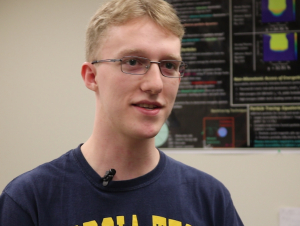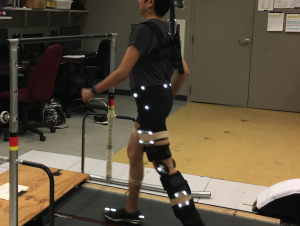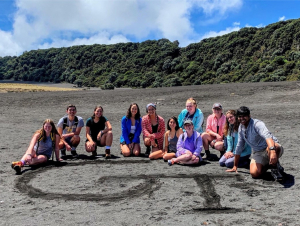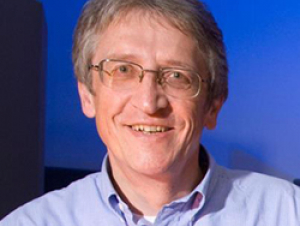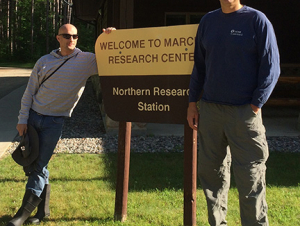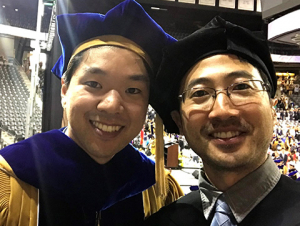To request a media interview, please reach out to experts using the faculty directories for each of our six schools, or contact Jess Hunt-Ralston, College of Sciences communications director. A list of faculty experts is also available to journalists upon request.
Latest News
To celebrate the International Year of the Periodic Table, Tech students, faculty, and staff talk about their favorite elements. For June, we have Benjamin Breer, a physics major who just completed his first year at Georgia Tech.
When I volunteered for a study that will observe and measure movements during walking, I knew only that my participation would help researchers figure out how to make better prostheses for people missing limbs. I didn’t know that the experience would surface strong feelings of empathy for people with ambulatory problems.
In just five weeks, we interviewed a former vice president of Costa Rica, scrambled up the slopes of a volcano, and came face to face with sloths, vipers, and bullet ants. The Nature, Governance, and Sustainability in Costa Rica (NGS-CR) Study-Abroad Program has been an unbelievable experience. From the remote jungles of Sarapiqui to the stunning peaks of Monteverde, Costa Rica has inspired us to explore and learn at every turn.
The Alexander von Humboldt Foundation has selected Jean-Luc Bredas to receive a Humboldt Research Award. The honor recognizes a researcher’s entire achievements to date. Recipients are academics whose fundamental discoveries, theories, or insights have had a significant impact on their own discipline and who are expected to continue producing cutting-edge achievements in the future.
It is a fact that climate is changing, but how much and how fast are the subject of debate. Georgia Tech researchers are attempting to answer these questions for peatlands, a freshwater wetland ecosystem. Their recent work indicates that warming of peatlands increases microbial production of greenhouse gases, releases more methane than carbon dioxide, reduces microbial diversity, and alters the composition of microbial communities in peat soils.
Puzzling results of a recent study of short DNA sequences by Harold Kim and former graduate student Jiyoun Jeong could pave the way to properly identifying the sequence dependence of rigidity and flexibility in DNA.

